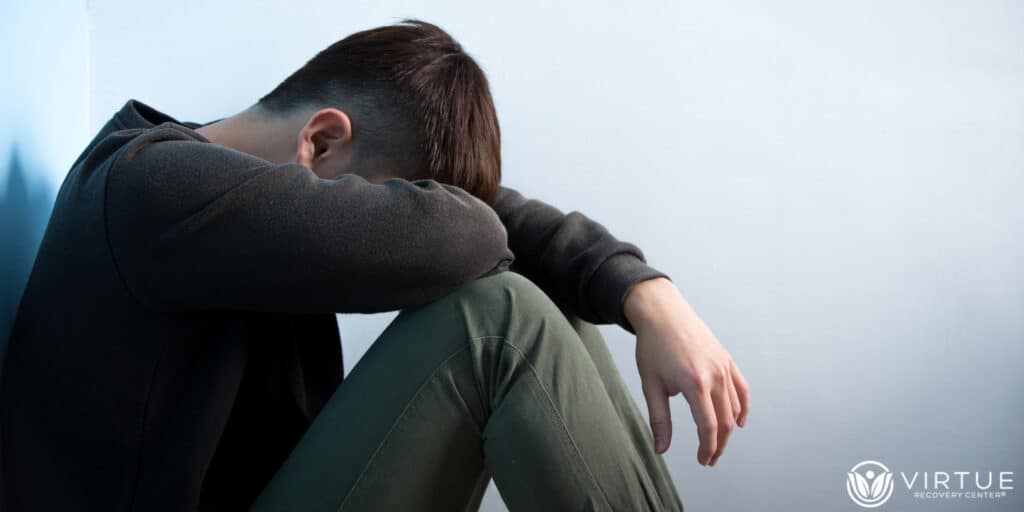
Table of Contents
Key Takeaways
- Cocaine addiction can spiral fast, draining your health, relationships, and career.
- Hitting rock bottom isn’t the end; it’s your wake-up call.
- A specialized cocaine addiction rehab program focuses on both the mind and body to heal long-term.
- Recovery involves detox, therapy, lifestyle shifts, and community support.
- Understanding what cocaine does to your brain is key to breaking free.
Introduction
Rock bottom doesn’t look the same for everyone. Maybe you woke up somewhere unfamiliar, or your family stopped answering your calls. Maybe the job’s gone, the bank account’s empty, or you’ve just had one too many close calls. But one thing is certain: if cocaine has taken over your life, it won’t stop until you do something different. This is where cocaine addiction rehab steps in. It’s not about punishment. It’s about rebuilding, safely, steadily, and with people who get it. You don’t need to suffer through the chaos anymore. Whether it’s your first attempt at getting clean or your fifth, it’s never too late to try again.What Does It Mean to Hit Rock Bottom with Cocaine?
Hitting bottom doesn’t always mean losing everything. Sometimes, it’s the moment you realize your weekends have turned into lost weeks. Other times, it’s when cocaine stops being fun and starts feeling like a prison. You chase a high that barely shows up anymore, and your body and mind begin to crash. According to MedlinePlus, cocaine intoxication causes increased heart rate, paranoia, aggression, and even seizures. Over time, it damages the heart, brain, and nervous system. But it also wrecks your mental health, making depression and anxiety worse. It pushes people away. It lies. It isolates. If any of this sounds like your reality, you’ve likely hit bottom. But even here, there’s still a way back up.How Can Cocaine Rehab Help You Heal Inside and Out?
 Rehab is more than just a place to quit using; it’s a safe, structured environment where medical detox, emotional support, and evidence-based therapy come together. During detox, trained professionals help you manage the physical symptoms of withdrawal, yes, they’re real, and they’re tough.
But detox is only the beginning. Cognitive Behavioral Therapy (CBT) plays a key role in the healing process by helping you rewire the thought patterns that keep you trapped in addiction. CBT is a practical, goal-focused method that teaches you to challenge the negative beliefs tied to your substance use. To understand how it works in addiction recovery, check out this manual for drug addiction therapy.
From there, therapy deepens the healing. You’ll receive individual counseling, participate in group sessions, and begin to rebuild your mental health. This is where true internal recovery starts. Programs like Virtue Recovery Center’s therapy services tailor care to your personal needs, because there’s no one-size-fits-all solution to addiction.
Rehab is more than just a place to quit using; it’s a safe, structured environment where medical detox, emotional support, and evidence-based therapy come together. During detox, trained professionals help you manage the physical symptoms of withdrawal, yes, they’re real, and they’re tough.
But detox is only the beginning. Cognitive Behavioral Therapy (CBT) plays a key role in the healing process by helping you rewire the thought patterns that keep you trapped in addiction. CBT is a practical, goal-focused method that teaches you to challenge the negative beliefs tied to your substance use. To understand how it works in addiction recovery, check out this manual for drug addiction therapy.
From there, therapy deepens the healing. You’ll receive individual counseling, participate in group sessions, and begin to rebuild your mental health. This is where true internal recovery starts. Programs like Virtue Recovery Center’s therapy services tailor care to your personal needs, because there’s no one-size-fits-all solution to addiction.
What Makes Rehab Different Than Just Quitting Cold Turkey?
 Cold turkey might seem brave, but it often ends in relapse. Why? Because addiction isn’t just physical. Cocaine rewires your brain’s reward system. It tricks you into needing it to feel okay.
A rehab program fights back with science and structure. According to the National Institute on Drug Abuse, sustained treatment that blends behavioral therapy with medical support gives you a much better shot at long-term recovery. Rehab brings the fight to addiction’s front door, and helps you shut it for good.
And it’s not just the therapy. Rehab means access to professionals who understand substance abuse disorder treatment, something most people can’t handle alone. This comprehensive program works to untangle the mental, emotional, and behavioral layers of addiction.
Cold turkey might seem brave, but it often ends in relapse. Why? Because addiction isn’t just physical. Cocaine rewires your brain’s reward system. It tricks you into needing it to feel okay.
A rehab program fights back with science and structure. According to the National Institute on Drug Abuse, sustained treatment that blends behavioral therapy with medical support gives you a much better shot at long-term recovery. Rehab brings the fight to addiction’s front door, and helps you shut it for good.
And it’s not just the therapy. Rehab means access to professionals who understand substance abuse disorder treatment, something most people can’t handle alone. This comprehensive program works to untangle the mental, emotional, and behavioral layers of addiction.
What Comes After Rehab Ends?
Once detox and therapy wrap up, what’s next? You keep going. Sobriety is a daily decision. That’s where aftercare and community come in. Recovery isn’t a one-person job. You’ll need continued support, healthy environments, and new routines. Sober housing, alumni groups, and outpatient therapy– these things keep you grounded. They remind you that recovery is a journey, not a weekend project. Rehab gives you the tools. Life after rehab is where you put them to use. Want to see just how destructive cocaine can be? Watch this short video on how crack cocaine destroys lives. It’s real, it’s raw, and it’s a reminder that you’re not alone in this fight.Wie kann eine Vorgeschichte von Wut- und Impulskontrollproblemen die Rehabilitation von Kokainabhängigen, die am Boden sind, beeinflussen?
Eine Vorgeschichte von Wut- und Impulskontrollproblemen kann die Rehabilitation von Kokainabhängigen, die am Boden sind, erheblich beeinträchtigen. Diese Schwierigkeiten erschweren die Bewältigung von Stress und Rückfällen. Programme, die cocain süchtige männer unterstützen, sollten gezielte Therapien anbieten, um emotionale Stabilität zu fördern und effektive Bewältigungsmechanismen zu entwickeln.
Conclusion
If cocaine has taken everything from you, now’s the time to take something back. Cocaine addiction rehab isn’t just about getting clean. It’s about getting clear on who you are, what you need, and where you want to go next. You don’t have to hit bottom again. This moment can be your turning point. Virtue Recovery Center can help you rise. Call 866-461-3339 or use the contact form to speak with someone who understands your needs. You’re not broken. You’re rebuilding.FAQs
What are the signs that I need cocaine rehab?
If cocaine use is impacting your health, relationships, job, or peace of mind, rehab might be necessary. Signs include using daily, feeling unable to stop, hiding your use, or experiencing withdrawal symptoms like agitation, fatigue, or paranoia when you don’t use.How long does cocaine rehab usually last?
Treatment lengths vary, but most inpatient programs last between 30 to 90 days. Longer stays often lead to better outcomes. After inpatient care, outpatient programs, and aftercare services continue the support.Will I be judged in rehab?
Absolutely not. Good rehab programs are built on compassion, not shame. The people there, both staff and fellow patients, understand what you’re going through. Everyone’s there to get better, not to criticize.Can I detox from cocaine at home?
Detoxing at home can be risky. Cocaine withdrawal isn’t always physically dangerous like alcohol or benzos, but the emotional crash, severe depression, suicidal thoughts, and cravings can be overwhelming. A supervised detox helps you stay safe and supported.What happens if I relapse after rehab?
Relapse doesn’t mean failure. It means something in your plan needs adjusting. Many people relapse and still go on to build lasting recovery. The key is to reach out quickly, reassess, and reestablish a supportive structure.Resources
https://nida.nih.gov/publications/research-reports/cocaine- Cognitive Behavioral Therapy for Drug Addiction
Are You Covered For Treatment?
At Virtue Recovery Center, we understand the importance of accessible care. That’s why we’re in-network with numerous private insurance companies, ensuring that your journey to recovery is supported from the start. Let us help you quickly and easily verify your insurance coverage. Begin your path to healing today.
- About the Author
- Latest Posts
Gigi Price( Clinical Director )
Gigi Price holds licenses as a Master Social Worker and Clinical Drug Counselor. She completed her master’s degree in Social Work at Texas State University. Over the last decade, Gigi has been dedicated to utilizing evidence-based practices to enhance patient care and treatment planning, resulting in positive, long-term outcomes for patients and their families. Her passion lies in creating a treatment environment where professionals collaborate to bring about positive change and provide a safe, trustworthy therapeutic experience. Patients can be confident in receiving top-quality care under her leadership.
In her role as the Clinical Director of Virtue Recovery Houston, Gigi conducted research to identify the most effective approaches for treating patients with acute mental health diagnoses, PTSD, and Substance Use Disorder. She then assembled a team of skilled clinicians who could offer various therapeutic modalities, such as Cognitive Behavioral Therapy (CBT), Dialectical Behavioral Therapy (DBT), Acceptance and Commitment Therapy (ACT), Somatic Exposure, Eye Movement Desensitization and Reprocessing (EMDR), and Cognitive Processing Therapy (CPT). Gigi takes pride in overseeing the development and implementation of Virtue Houston’s Treatment Program, which includes two specialized therapeutic curricula tailored to the unique needs of individuals struggling with mental health issues, addiction, and PTSD.
How Cognitive Behavioral Therapy Supports Lasting Sobriety After Cocaine Addiction …
How an Eating Disorder Program Helps Manage Binge-Eating Episodes Key …
Key Takeaways Regular exercise reduces cravings and withdrawal symptoms. Physical …
Key Takeaways Veterans Day began as Armistice Day in 1918 …
Key Takeaways Proper nutrition plays a vital role in addiction …
Key Takeaways Long-term sobriety is achievable with evidence-based addiction treatment …


























